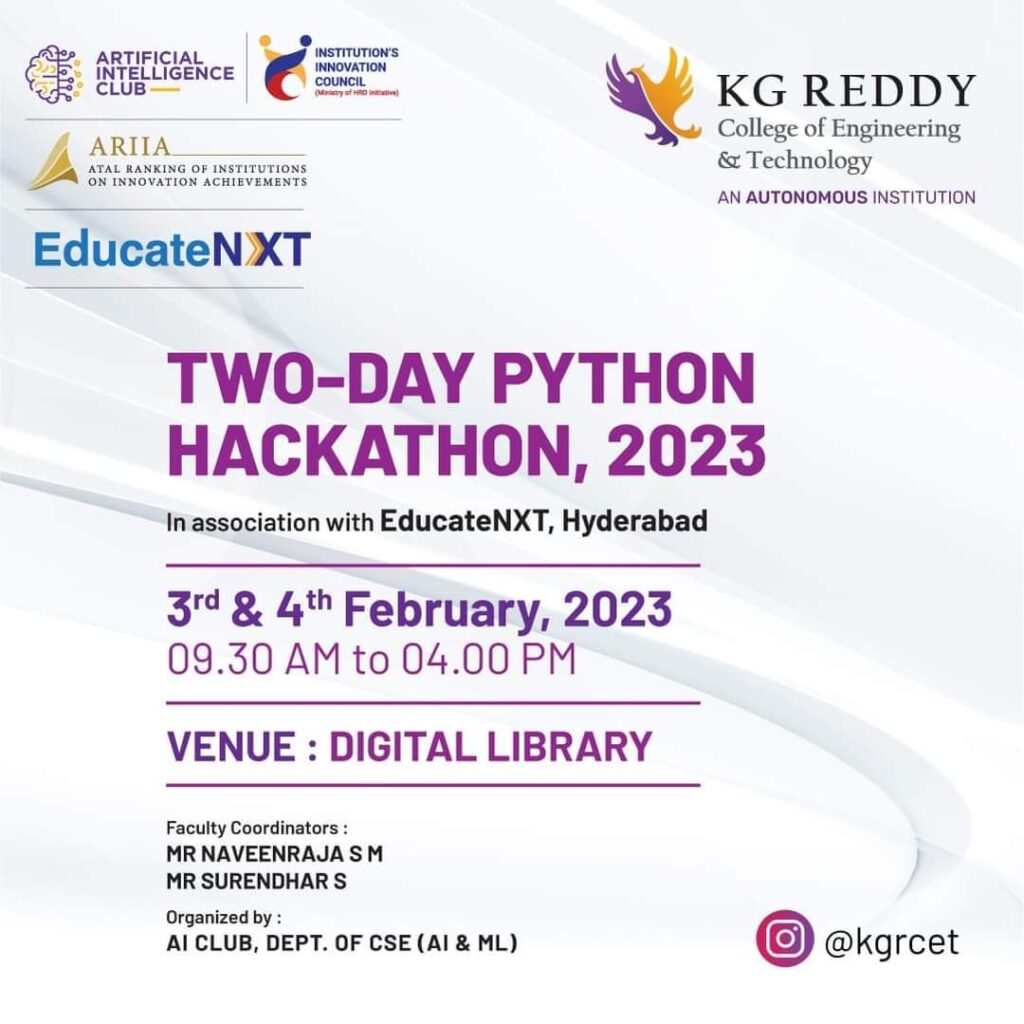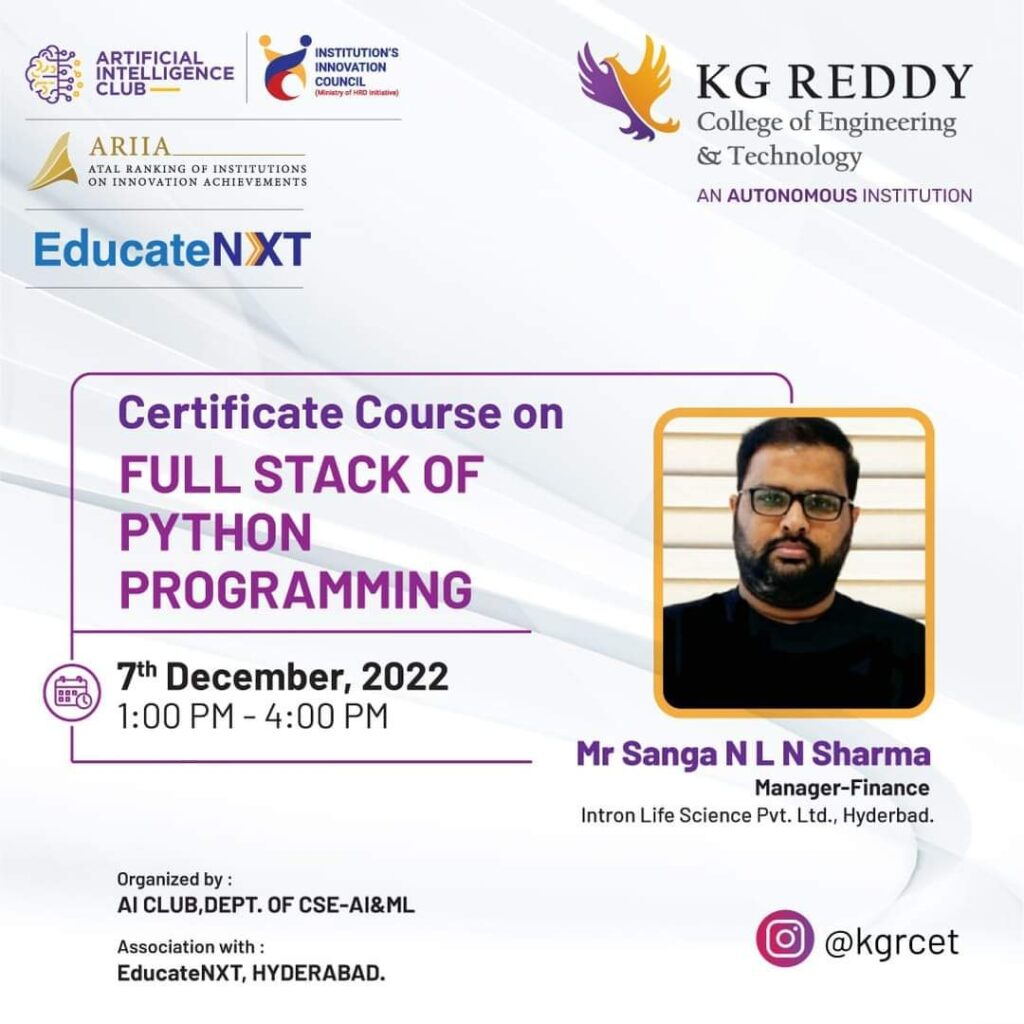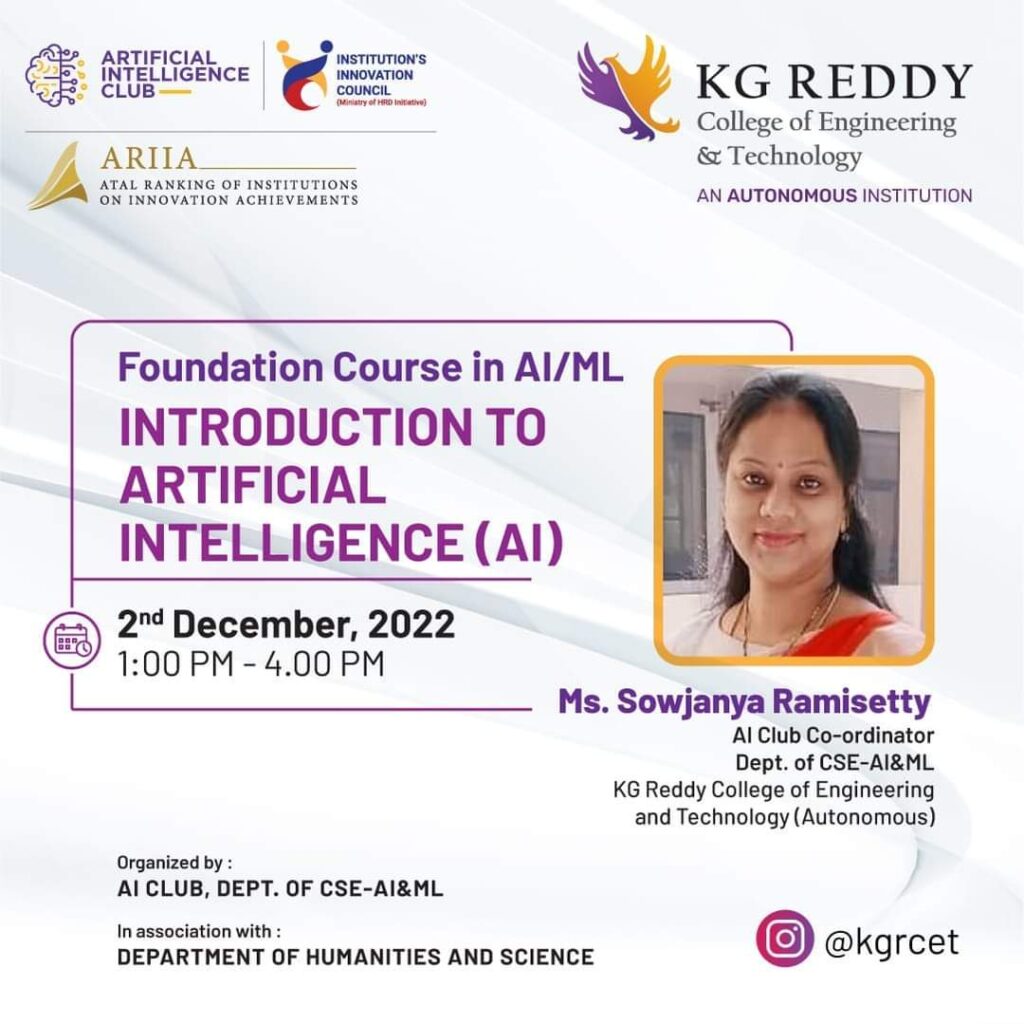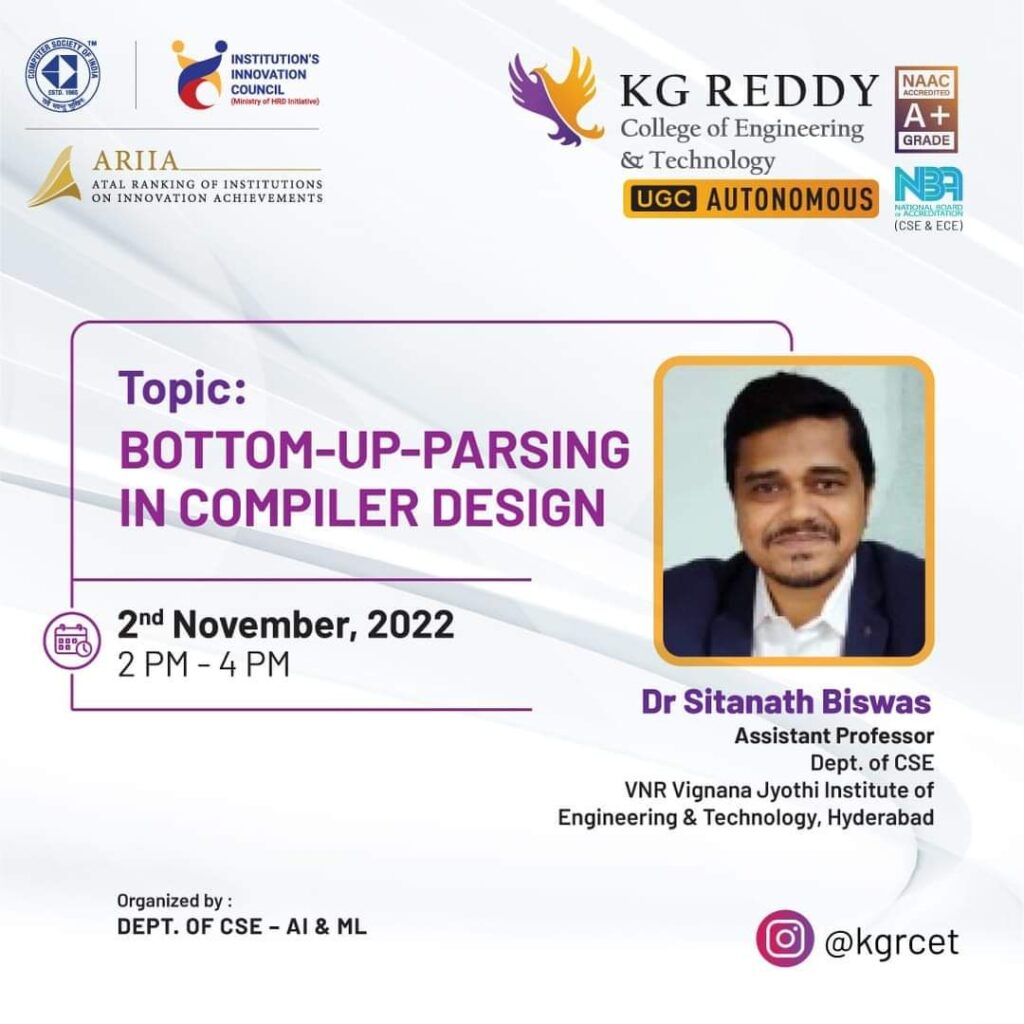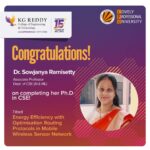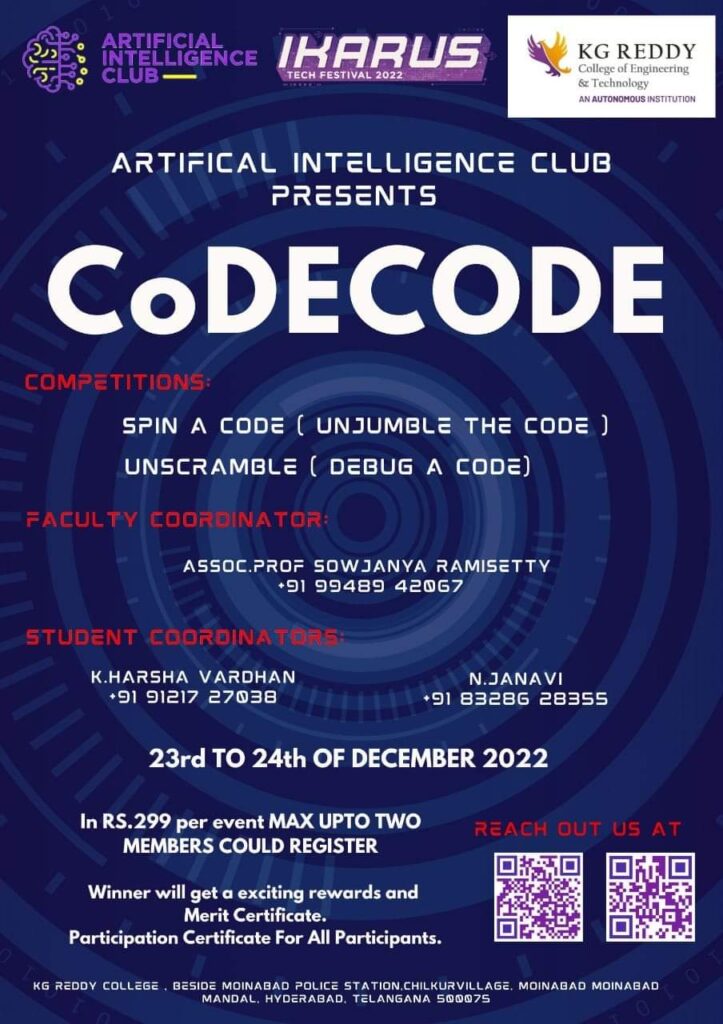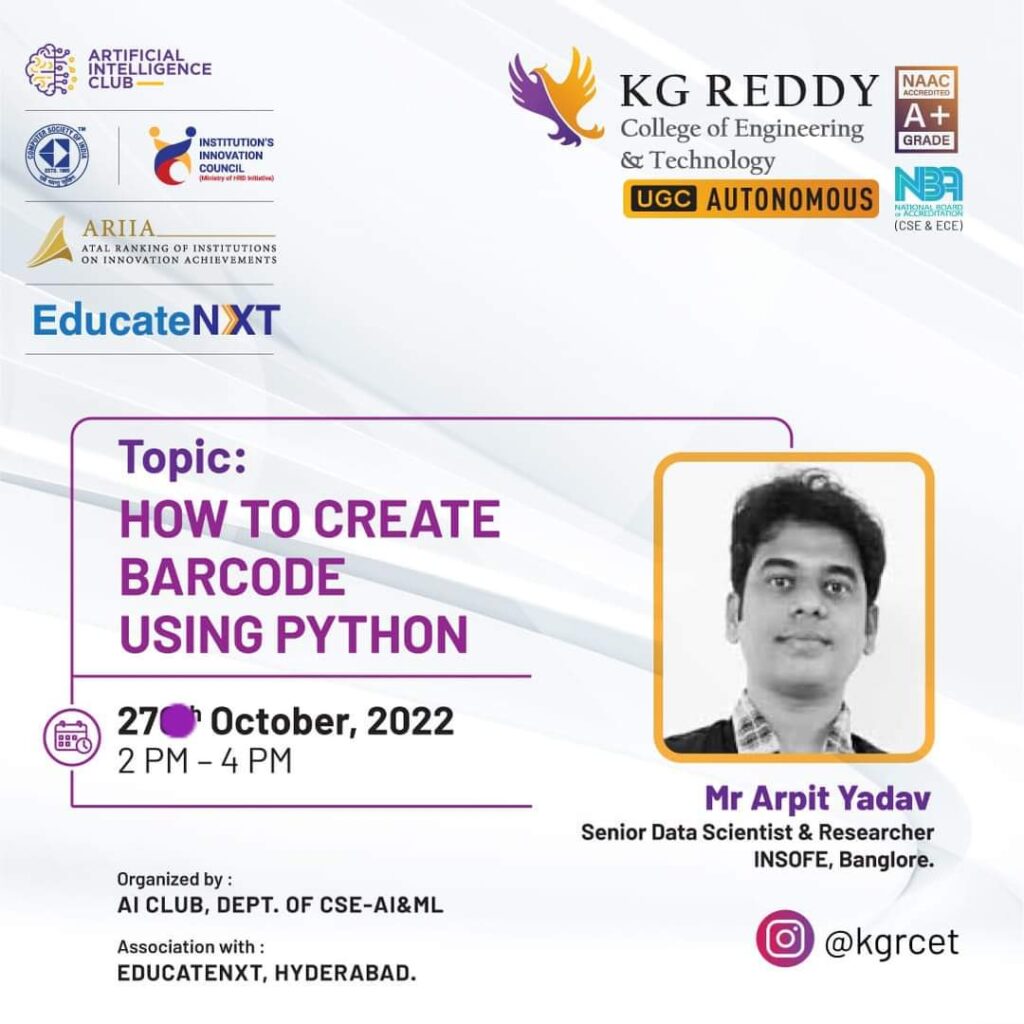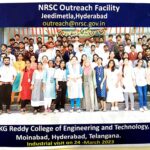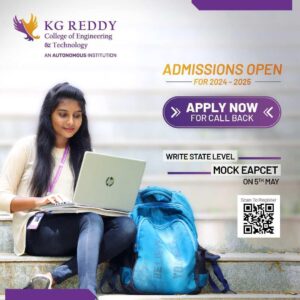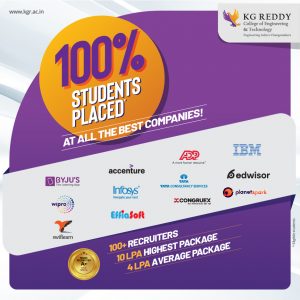About Department
B. Tech in Artificial intelligence & Machine Learning is an undergraduate programme with advanced learning solutions imparting knowledge of advanced innovations like machine learning, often called deep learning and artificial intelligence.
This specialization is designed to enable students to build intelligent machines, software, or applications with a cutting-edge combination of machine learning, analytics and visualization technologies. The main goal of artificial intelligence (AI) learning is to program computers to use example data or experience to solve a given problem. Many successful applications based on machine learning exist already, including systems that analyze past sales data to predict customer behavior (financial management), recognize faces or spoken speech, optimize robot behavior so that a task can be completed using minimum resources, and extract knowledge from bioinformatics data, and all these you will learn the artificial intelligence and machine learning engineering college in Hyderabad.
This programme discusses AI methods based in different fields, including neural networks, signal processing, control, and data mining, in order to present a unified treatment of machine learning problems and solutions.
Our Vision
- To be recognized as a department of excellence by stimulating a learning environment in which students and faculty will thrive and grow to achieve their professional, institutional and societal goals.
Our Mission
- To provide high quality technical education to students that will enable life-long learning and build expertise in advanced technologies in Computer Science and Engineering.
- To promote research and development by providing opportunities to solve complex engineering problems in collaboration with industry and government agencies.
- To encourage professional development of students that will inculcate ethical values and leadership skills while working with the community to address societal issues.
Program Outcomes
- PO I: Engineering knowledge: Apply the knowledge of mathematics, science, engineering fundamentals, and an engineering specialization to the solution of complex engineering problems.
- PO II: Problem analysis: Identify, formulate, review research literature, and analyze complex engineering problems reaching substantiated conclusions using first principles of mathematics, natural sciences, and engineering sciences.
- PO III: Design/development of solutions: Design solutions for complex engineering problems and design system components or processes that meet the specified needs with appropriate consideration for the public health and safety, and the cultural, societal, and environmental
considerations. - PO IV: Conduct investigations of complex problems: Use research-based knowledge and research methods including design of experiments, analysis and interpretation of data, and synthesis of the information to provide valid conclusions.
- PO V: Modern tool usage: Create, select, and apply appropriate techniques, resources, and modern engineering and IT tools including prediction and modeling to complex engineering activities with an understanding of the limitations.
- PO VI: The engineer and society: Apply reasoning informed by the contextual knowledge to assess societal, health, safety, legal and cultural issues and the consequent responsibilities relevant to the professional engineering practice.
- PO VII: Environment and sustainability: Understand the impact of the professional engineering solutions in societal and environmental contexts, and demonstrate the knowledge of and need for sustainable development.
- PO VIII: Ethics: Apply ethical principles and commit to professional ethics and responsibilities and norms of the engineering practice.
- PO IX: Individual and team work: Function effectively as an individual, and as a member or leader in diverse teams, and in multidisciplinary settings.
- PO X: Communication: Communicate effectively on complex engineering activities with the engineering community and with society at large, such as, being able to comprehend and write effective reports and design documentation, make effective presentations, and give and receive clear instructions.
- PO XI: Project management and finance: Demonstrate knowledge and understanding of the engineering and management principles and apply these to one’s own work, as a member and leader in a team, to manage projects and in multidisciplinary environments.
- PO XII: Life-long learning: Recognize the need for, and have the preparation and ability to engage in independent and life-long learning in the broadest context of technological change.
Program Educational Objectives
- PEO 1: Graduates will provide solutions to difficult and challenging issues in their profession by applying computer science and engineering theory and principles.
- PEO 2: Graduates have successful careers in computer science and engineering fields or will be able to successfully pursue advanced degrees.
- PEO 3: Graduates will communicate effectively, work collaboratively and exhibit high levels of professionalism, moral and ethical responsibility.
- PEO 4: Graduates will develop the ability to understand and analyse engineering issues in a broader perspective with ethical responsibility towards sustainable development.
Program Specific Outcomes
- PSO1: Design and apply the knowledge of Image Processing and Natural Language Processing principles to solve the complex Machine Learning problems which are cost effective and find appropriate solutions to build expert systems.
PSO2: Analyze, Evaluate and synthesize the solutions for Real time problems in Pattern Recognition and Robotics domain to conduct the research in practical context to create the applicable systems.
PSO3: Implement the concepts of Artificial Intelligence & Machine Learning to build the intelligent models and systems that are meeting Industry standards with ethical values.

Prof. Rambabu Mudusu
Associate Professor & HoD
hod.csm@kgr.ac.in
Prof. Rambabu Mudusu has 15 years of teaching experience and 5 years of Research experience, currently working as an Associate Professor, Department of CSE-AI&ML at K G Reddy College of Engineering and Technology, Hyderabad. He is Pursuing Ph.D. from National Institute of Technology (NIT)-GOA, in the area of Image Processing using Deep Learning Techniques. He Published 22 papers, among them 6 research articles published in SCOPUS indexed journals and conferences. He has Attended 8 Conferences, 2 Papers honoured as best papers certificate. He has honoured as Best Researcher Award. He is the Certified Member from Microsoft.NET framework and Coursera on AI.
HOD Message:
It’s evident that the Department of Computer Science and Engineering – Artificial Intelligence & Machine Learning at KG Reddy College of Engineering & Technology, is dedicated to providing a comprehensive and innovative educational experience for KGR Students. The commitment to imparting high-quality technical education, combined with a focus on experiential learning opportunities, projects, research, and internships, underscores the department’s dedication to preparing students for the challenges of the 21st century.
The emphasis on hands-on training, interdisciplinary collaboration, and participation in technical competitions and hackathons reflects a proactive approach towards grooming students to become well-rounded professionals in the field of AIML. Additionally, the diverse range of research areas covered by the department, including Algorithms, Image Processing, Data Mining, Data Analytics and Computer Security, ensures that students are exposed to the latest developments and advancements in the field.
Moreover, the supportive and collaborative environment fostered by the faculty, staff, and students contributes to the overall success of the department. By encouraging teamwork, mutual support, and a belief in each other’s abilities, the department is creating a conductive atmosphere for learning and innovation.
The department’s vision to become one of the best institutions in Telangana and India is commendable, and it’s evident that they are well-prepared to face the challenges of the digital era head-on. Overall, the Department of Computer Science and Engineering – Artificial Intelligence & Machine Learning at KGRCET appears to be a dynamic and forward-thinking institution that is dedicated to shaping the future of the students with AIML education and research.

Prof. Rambabu Mudusu
HoD & Associate Professor
hod.csm@kgr.ac.in
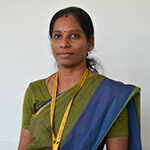
Dr Maithili
Associate Professor
drmaithili@kgr.ac.in

Mr. Dev Das
Assistant Professor
devdas@kgr.ac.in

Mr Naveen Raja S M
Assistant Professor
Naveenraja.sm@kgr.ac.in
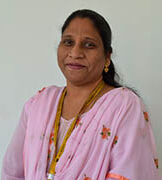
Mrs. Rajya Lakshmi
Assistant Professor
rajyalakshmi@kgr.ac.in
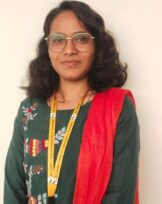
Ms. Priyanka Malviya
Assistant Professor
priyanka.malviya@kgr.ac.in

Mr. Yerragudipadu Subbarayudu
Assistant Professor
ysrayudu@kgrcet.ac.in

Mr. Asif Ali Khan
Assistant Professor
asif.alikhan@kgr.ac.in
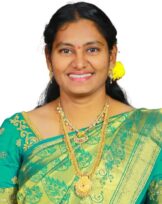
Mrs. Mandava Seshma Chowdary
Assistant Professor
Seshma@kgr.ac.in
| S.No | DESCRIPTION | YEAR – SEM | CONTENT |
|---|---|---|---|
| 1 | Academic Calendar | 2023-24 | Academic Calendar for 2023-24 (II-I SEM) Academic Calendar for 2023-24 (II-II SEM) Academic Calendar for 2023-24 (III-I SEM) Academic Calendar for 2023-24 (III-II SEM) Academic Calendar for 2023-24 (IV-I SEM) Academic Calendar for 2023-24 (IV-II SEM) |
| 2 | Time Tables | 2023-24 | Academic Time Table for 2023-24 (II-II SEM) Academic Time Table for 2023-24 (III-II SEM) Academic Time Table for 2023-24 (IV-II SEM) |
Students Achievement:
- Total 5 students from II- year have completed the Coding Ninjas course on Creating First Game using Java Script
- II-year Shaik Maaz Uddin and III-year MaulikThummar have attended a workshop by Coding Ninjas on Python Hacking Champion
- II-year Heerakar Manogna has completed National level quiz on “SRINIVASA RAMANUJAN” organized by Rajeev Gandhi Memorial College of engineering and technology.
- III- year student Maulik Thummar has completed the Basics of Machine Learning which was organized by Great Learning
- II-year Anu Ramisetty has achieved the best Rotaractor of the Rotaract club of new age Engineers
- III-year Jayavaram Rakesh successfully completed his 7-day work shop on Business Funnel Analytics & experimentation techniques
- III-year students Maulik Thummar ,G.Yuvraj Singh ,Tanzeem Mallick have actively participated in the Youth Parliament which was held in KG reddy college of Engineering and Technology .
- III-year vinaykumar has successfully completed supervised machine learning and advanced learning algorithms and has attended the International Conference on Computational Intelligence and Data Engineering.
- III-year Kopisetty Praveen Vardhan Raju has successfully completed advanced learning algorithms ,courses of machine learning ,unsupervised learning recommenders, reinforcement learning supervised machine learning and project management essentials .
- III- year Sai Bhargav Bodapati has successfully completed three courses of machine learning and has been appointed as the executive trainer of the district organization of Rotaract for the year 2023-24
- III-year Cheparthy Naveen Kumar has successfully completed Artifical Intelligence With Machine Learning.
- III-year Erusalagandi Vivek Chary has successfully completed course Deep Learning and Artifical intelligence with Machine learning.
- III-year Dadvaiah Pavan has successfully completed course on supervised machine learning and advanced learning algorithms.
- II-year Papineni Divya has successfully completed workshop on Learn to build a to-do list and Become proficient in trees.
- Total 5 students are selected as Innovation Interns in KGR Innovation Cell for the Academic year 2022-23
- Our III year student Vinay Kumar completed coursera course on “AI for everyone” .
- Our II year student MOKA ABHISHAKTH participated in Megathon 2022.
- Total 40 students from III year have completed the oracle academy course on Artificial Intelligence and Machine learning with Java in association with TASK.
- Our students (Maulik thummar, Harsha vardhan,Yuvrajsingh and Arshiya begum) developed a software to generate a certificates and a newsletter automatically under the guidance of K.RAMA KRISHNA REDDY,AssistantProfessor,CSE Department.
- Total 12 students participated in Project Expo at KG Reddy College of Engineering and Technology.
- Total 32 students participated in a Guest lecture on Blockchain at KG Reddy College of Engineering and Technology.
- Total 45 students participated in ONE DAY WORKSHOP ON DEVOPS at KG Reddy College of Engineering and Technology.
- Total 11 students participated in YOUTH PARLIAMENT at KG Reddy College of Engineering and Technology.
- Total 62 Students participated in Technical Workshop on “How to Create Barcode using Python ” which was organized by AI Cub,Department of AI &ML in association with EducateNXT,Hyderabad.
Faculty Achievements:
- Dr.SivaShankar.s has successfully presented the paper entitled “Evaluating the solutions to predict the impact of lung cancer with an advanced intelligent computing method”
- Dr.K.Maithili has attended the “Tenth International Conference on Transformations in Engineering Education (ICTIEE 2023) held at Vidyavardhaka College of Engineering,Mysuru in association with Indo Universal Collaboration for Engineering Education(IUCEE) from January 5 to 8,2023 and also participated in ion idea sponsored workshop on ion Education ERP Solutions.
- Dr. Siva Shankar S, has given Guest Lecture on Intellectual Property Rights to K.B.N College (Autonomous), Kothapeta, Vijayawada on 31st Dec 2022.
- Dr. K,Maithili has attended a “Faculty Induction Program-11” which was conducted by UGC-HRDC-JNTUH from 21.11.2022 to 21.12.2022.
- Ms Sowjanya Ramisetty has attended a ATAL Faculty Development Programme on ” Drone Imaging & AI/ML Tool for Improving Decision Making in Agriculture Applications ” to be conducted from 05-12-2022 to 10-12.2022 (Online) and 12-12-2022 to 16-12-2022(Offline).
- Mr Naveen Raja S M is admitted to Ph.DProgramme at Noorul Islam Center for Higher Education on 14th Dec,2022.
- Mr.Surendhar Soundararajan has completed the Coding Ninjas course on “Creating First Game using Java Script”.
- Mr.Surendhar Soundararajan has participated in the Two Day Faculty Development Program on “CYBER SECURITY” on 2nd& 3rd December 2022 at JNTUH.
- Dr.Siva Shankar S published book as co-author titled “Object Oriented Software Engineering”, GCS Publishers, India, Dec 2022
- Dr.Siva Shankar S published book as co-author titled “Data Analytics”, GCS Publishers, India, Dec 2022.
- Prof.SowjanyaRamisetty, Associate Professor has published a paper on ” Energy Efficient Unequal Fault Tolerance Clustering Approach ” in the Journal of Computer Systems Science & Engineering.
- Prof.SowjanyaRamisetty, Associate Professor participated in the AICTE recognized FDP on open source Technologies conducted by the Computer Science and Engineering department at SNIST,Hyderabad.
- Prof. Naveen Raja S M ,Assistant Professor completed a Great Learning course on Python fundamentals for beginners.
- Dr. S. Siva Shankar Associate Professor has Published “A detailed study on Applications of IOT in Higher Education System” in the Journal of Neuro Quantology.
- Dr.K.Maithili, Associate Professor has Published “Epilepsy seizure Feature Extraction using Discrete Wavelet Transform for Healthcare Application” in the Journal of Neuro Quantology.
- Dr.K.Maithili, Associate Professor has published a paper on ” Stage-Wise Categorization and Prediction of Diabetic Retinopathy Using Ensemble Learning and 2D-CNN” in the Journal of Intelligent Automation & Soft Computing.
MoUs are signed by the department/Institution with Academia or Industry for Academic, Research and student training. Currently, the department of Artificial Intelligence & Machine Learning has MoUs with 9 different agencies/organizations and details are as follows:
- Navrik Software Solutions
- EducateNXT
- Andura Tech Solutions Pvt. Ltd.
- Pactolus Edutech Pvt. Ltd.
- Kalinga Software Pvt. Ltd.
- Bias IT Consulting Pvt. Ltd.
- Advit Software & Business Solutions Pvt. Ltd.
- Sesillis Solutions Pvt. Ltd.
- ScrapQ IT Hub Pvt. Ltd.
- Syscon Solutions Pvt. Ltd.
- Bomotix Pvt. Ltd.
Board of Studies
| S.No | Name of the BOS
Member |
Designation | Organization | Position in BOS | ||
| 1 | Prof. Rambabu Mudusu | Associate Prof, HOD- CSE(AI & ML) | KGRCET | Chairman | ||
| The entire faculty of each specialization | ||||||
| 2 | Dr Maithili | Associate Professor, Dept of CSE(AI & ML) | KGRCET | Member | ||
| 3 | Mr. Naveen | Assistant Professor, CSE(AI & ML) | KGRCET | Member | ||
| 4 | Mr. Devdas | Assistant Professor, CSE(AI & ML) | KGRCET | Member | ||
| 5 | Mrs Rajya Lakshmi | Assistant Professor, CSE(AI & ML) | KGRCET | Member | ||
| 6 | Mr. Y Subbarayudu | Assistant Professor, CSE(AI & ML) | KGRCET | Member | ||
| Two subject experts from outside the parent University to be nominated by the Academic Council (AC) | ||||||
| 10 | Dr. P. Radhakrishna | Professor,
Department of CSE |
National Institute of Technology Warangal
(NIT Warangal) Warangal, India |
Nominated by
Academic Council |
||
| 11 | Dr. M.V.N.K.
Prasad |
Associate Professor, Department of CSE | IDRBT Hyderabad,
Hyderabad India |
Nominated by
Academic Council |
||
| One expert to be nominated by the Vice-Chancellor from a panel of six recommended by the college principal | ||||||
| 12 | Dr Vijaya Kumari | Professor, Department of CSE | JNTUH Hyderabad India | Nominated by the
Vice-Chancellor |
||
| One representative from industry/corporate sector/allied area relating to placement | ||||||
| 13 | Mr. Srinivas Kongara | Infosys, Program Manager
Hyderabad |
Leading R&D Division
Industry expert |
Nominated by
Principal |
||
| One postgraduate meritorious alumnus to be nominated by the principal. The Chairman, Board of Studies | ||||||
| 14 | Mr. Chaitanya | Alumni (B .Tech) | KGRCET | Nominated by
Principal/ HoD |
||
Program Assessment Committee (PAC)
| S. No | Name of faculty | Designation | Position | Parent organization |
| 1. | Prof. Rambabu Mudusu | HOD | Chairman | KGRCET |
| 2. | Ms Priyanka | Assistant professor | Coordinator | KGRCET |
| 3. | Mr. Y Subbarayudu | Assistant professor | Member (IV-Module Coordinator) | KGRCET |
| 4. | Mrs. Rajya Lakshmi | Assistant professor | Member (III-Module Coordinator) | KGRCET |
| 5. | Mr. Naveen | Assistant professor | Member (II-Module Coordinator) | KGRCET |
Department Development Committee (DDC)
| Sl. No | Name of faculty | Position | Responsibility |
| 1. | Prof. Rambabu Mudusu
Ramisetty |
Chairman | |
| 2. | Mr. Naveen | Coordinator | Regular Course work |
| 3. | Dr Maithili | Member | Research Work/Project work |
| 4. | Mr. Devdas | Member | Admin Files |
| 5. | Mrs. Rajya Lakshmi | Member | Academic Work |
| 6. | Mr. Y Subbarayudu | Member | Laboratories |
| 7. | Ms. Priyanka | Member | Extra-curricular Activities |
Finance Committee (FC)
| S. No | Name of the faculty | Position | Responsibilities |
| 1. | Prof. Rambabu Mudusu | Chairman | |
| 2. | Mr. Devdas | Coordinator | Budget and Expenditure Preparation |
| 3. | Mr. Naveen | Member | Laboratory equipment, Software and Consumables |
| 4. | Mr. Y Subbarayudu | Member | R&D, Training and Travel |
| 5. | Dr. Maithili | Member | Maintenance and spares |
Project Review Committee (PRC)
| Sl. No | Name of the Faculty | Designation | Position |
| 1 | Prof. Rambabu Mudusu | Associate Professor | Chairman |
| 2 | Dr. Maithili | Associate Professor | Coordinator |
| 3 | Mr. Naveen | Associate Professor | Member |
| 4 | Mr. Devdas | Assistant Professor | Member |
| 5 | Mrs. Rajya Lakshmi | Assistant Professor | Member |
| 6 | Mr. Y Subbarayudu | Assistant Professor | Member |
| 7 | Ms. Priyanka | Assistant Professor | Member |
Certificate Course
Courses in Computer Science and Engineering vary greatly in nature. Some are studied online, and some are presented in a classroom. Many courses lead to a certificate at their completion, which can be helpful when looking for a job. Whether students are new to the world of information technology, or are seeking to advance in your existing career, completing a course can only enhance student’s options. Computer Science and Engineering (CSE) professionals may select from a wide variety of non-degree computer science certifications to demonstrate their competence in a specialty, learn valuable skills, and advance their careers. A computer science and engineering certification validates a professional’s technical knowledge and experience with specific products, methods, or practices. Roles within the computer science industry that may require certification include systems engineer, security manager, network administrator, software developer, and project manager. Because these high-paying roles involve using technical expertise to manage and protect essential operations and sensitive data, employers value — and often require — proven credentials.
Computer science certifications ask candidates to pass one or more tests. In preparing to pass these credentialing exams, professionals gain and practice certain skills. Many professionals value the process of preparing for these tests since they gain knowledge they can apply in their jobs and use to advance their careers. This course at the Best ML and AI Engineering College is a forum to bring together students to discuss innovative ideas and diverse topics of this course on next generation of information technologies. Department has taken a new step for students to improve the quality of study through this course and become most wide scale , extensive, spectacular event in computer science engineering.
Objective of Certificate Course
In the field of Computer Science and Engineering, a student’s set of skills must constantly be updated and expanded. Programming languages fluctuate in popularity from year to year, and new advances are made in networking and security technology. The completion of a short course or certificate program demonstrates knowledge of the latest tools and concepts, and can lend a distinct advantage in a competitive job market. Computer Science and Engineering courses are offered at KG Reddy College of Engineering and Technology – renowned as the Best Machine Learning & Artificial Intelligence Engineering College in Hyderabad. It is easy to find appropriate courses in area of interest. Students can choose from specialized topics including programming languages, networking, computer security, and multimedia development, Artificial Intelligent, cloud computing, Machine Learning etc. These courses of study can often be taken individually; other times, they are offered in conjunction with a degree program.
Scope of the Course
Depending upon the interest the career in IT can be chosen. Those who love programming and coding can do software engineering and those who prefer networking and system administration, can do hardware engineering. IT sector is quite broad in terms of employment and job options. Roles are varieties for Computer engineers in IT sector, but their primary role is to apply the knowledge of mathematics and science to design and develop software to be used by clients or users. There are network engineers, system management professionals besides the computer engineers. Computer software engineers have bright career prospects as the application of software and dependency on it in various walks of life are increasing. After completion of certificate course at Artificial Intelligence & Machine Learning engineering college, they can gain much more knowledge based on latest technology which are available in IT sector. Thus it helps to them to make their bright carrier in different directions such as (a) an software engineer, (b) Researcher, (c) great academician, (d) make own software industry, (e) system administration etc.
| S.No | Course Name | Duration of the Course | No. of Students Attended | No. of Students Appeared Examination | No. of Students Passed | Academic Year |
|---|---|---|---|---|---|---|
| 1 | Python for Data Science & Hackathon | 26-09-2023 to 26-09-2023 | 118 | 118 | 118 | 2023-24 |
| 2 | UiPath – Robotic Process Management | 17-04-2023 to 03-05-2023 | 118 | 118 | 118 | 2022-23 |
| 3 | Full Stack on Python Programming | 15-11-2022 to 07-01-2023 | 73 | 73 | 73 | 2022-23 |
| 4 | Advanced C Programming | 20-07-19 to 16-11-19 |
66 | 66 | 66 | 2019-20 |
| 5 | Internet of Things (IOT) | 11-02-2019 to 15-02-19 |
101 | 101 | 101 | 2018-19 |
| 6 | Microsoft Technical Associate Database Fundamentals (MTA DBF) | 27-08-18 to 01-09-18 |
96 | 96 | 96 | 2018-19 |
| 7 | Web Design | 15-02-18 to 19-02-18 |
96 | 96 | 96 | 2017-18 |
| 8 | Cloud Computing & Security | 08-01-18 to 12-01-18 |
86 | 86 | 86 | 2017-18 |
| 9 | Database Programming with SQL | 30-10-17 to 03-11-17 |
109 | 109 | 109 | 2017-18 |
- Teaching and Learning Activities in Classroom
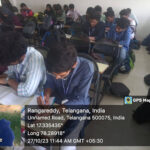

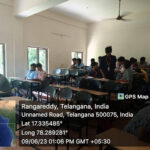
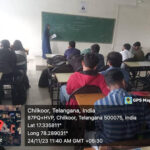
| 2022 – 2023 Placements | |||
| SL.NO | Roll number | Name | Company |
| 1 | 19QM1A0598 | Shivani Gupta | Nitro network |
| 2 | 19QM1A0530 | Gaddam Deepika | Quadrant Resource |
| 3 | 19QM1A0586 | Sumanth Pagadala | Atomstate |
| 4 | 19QM1A0516 | Darga Shivani | TCS |
| 5 | 19QM1A05A9 | Jaisingh. | Programme.io |
| 6 | 19QM1A0557 | Tarun Kotagiri. | Lomos |
| 7 | 19QM1A0548 | K Sravanthi | Quadrant Resource |
| 8 | 19QM1A0538 | Govindagari Shiva Prasad Reddy | Quadrant Resource |
| 9 | 19QM1A0540 | Hrushinath Gunda | Bot Defence Infotech solutions |
| 10 | 19QM1A0550 | Kankanala Harshini | Quadrant Resource |
| 11 | 19QM1A0517 | Karthik Dasari | Turing Minds |
| 12 | 19QM1A0533 | Garlapati Nikil | Bot Defence Infotech solutions |
| 13 | 19QM1A0541 | Gunja Jyothi | Sri Katyayani Advertising |
| 14 | 19QM1A05A0 | Swapnil Choudhary | Adqura |
| 15 | 19QM1A0590 | Pochaboyina Bhavani | Bot Defence Infotech solutions |
| 16 | 19QM1A0599 | Sriramoju Anjali | Quadrant Resource |
| 17 | 19QM1A05A3 | Mahesh Babu | Turing Minds |
| 18 | 19QM1A0523 | Maharaj Donakanti | Bot Defence Infotech solutions |
| 19 | 19QM1A0542 | Gurram Sowmya | Turing Minds |
| 20 | 19QM1A0537 | Gundla Durga Prasad. | Vinex Innovations |
| 21 | 19QM1A0578 | Molihati Vamshi | Quadrant Resource |
| 22 | 19QM1A0528 | Eruku Sneha | Bot Defence Infotech solutions |
| 23 | 19QM1A05B0 | V Chandar Reddy | Quadrant Resource |
| 24 | 19J11A0513 | Mittapally Srikanth | Vinex Innovations |
| 25 | 19QM1A0545 | Jangam Rajkumar | Quadrant Resource |
| 26 | 19QM1A0547 | Pravalika Koninti | Bot Defence Infotech solutions |
| 27 | 19QM1A0583 | Nishad Unnisa | Planet spark |
| 28 | 19QM1A0549 | Kandakatla Anushreddy | Vinex Innovations |
| 29 | 19QM1A0592 | Ramarthi Akshaya | Quadrant Resource |
| 30 | 19QM1A0579 | Mula Samitha Goud | Bot Defence Infotech solutions |
| 31 | 19QM1A0573 | Mohammad Wazahathulla Baig | Addod |
| 32 | 19QM1A0574 | Mohammed Abdul Hadi | Addod |
| 33 | 19QM1A0568 | Mannepally Bhavyasree | Vinex Innovations |
| 34 | 19QM1A0563 | Malupati Shreya | Planet spark |
| 35 | 19QM1A0554 | Konduru Jyosthna | Adqura |
| 36 | 19QM1A05A2 | Taidala Lakshmi Kanth | Quadrant Resource |
| 37 | 19QM1A0581 | Nallamadhi Sai Priya | Quadrant Resource |
| 38 | 19QM1A0571 | Mettu Ramya | Vinex Innovations |
| 39 | 19QM1A0536 | Gorijavolu Harshavardhani | Bot Defence Infotech solutions |
| 40 | 19QM1A0539 | G.Bharatwaj Gudiboina | Vinex Innovations |
| 41 | 20QM5A0506 | Kasani Swathi | Quadrant Resource |
| 42 | 20QM5A0505 | H Raju Goud | Addod |
| 43 | 19QM1A0535 | G. Vishvas Reddy | BYJU’S |
| 44 | 18QM1A0558 | M Pranay Kumar | Caliber technologies |
| 45 | 19QM1A0529 | G Manasa | Quadrant Resource |
| 46 | 19QM1A0520 | Ashrith Kumar | Nitro network |
| 47 | 19QM1A0576 | Mohammed Taufiq Ur Rehman | Quadrant Resource |
| 48 | 19QM1A0552 | Katne Shruthi. | Vinex Innovations |
| 49 | 19QM1A0543 | I. Prathik | BYJU’S |
| 50 | 19QM1A0501 | Aluru Sumanth | Addod |
| 51 | 19QM1A05B4 | Yash Chandan | Quadrant Resource |
| 52 | 20QM5A0501 | Banoth Pavan | Quadrant Resource |
| 53 | 19QM1A0558 | Kothagadi Sravya Reddy | BYJU’S |
| 54 | 19QM1A0562 | Malge Shubham | Pentagon Space Pvt Ltd |
| 55 | 20QM5A0507 | Konda Sai Madhav | Intellipat |
| 56 | 19QM1A0595 | Sai Manideep Kodithyala | Quadrant Resource |
| 57 | 19QM1A0503 | Annavarapu Vvs Gangadhar | Bot Defence Infotech solutions |
| 58 | 19QM1A0589 | Pobbathi Hepsibha | Quadrant Resource |
| 59 | 19QM1A0582 | Nallangi Shireesha | Quadrant Resource |
| 60 | 19QM1A0575 | Mohammed Aftab | Addod |
| 61 | 19QM1A05A4 | Tehniyath Tanzeem | Addod |
| 62 | 20QM5A0512 | Kankanala Shravan Kumar | Quadrant Resource |
| 63 | 19QM1A0532 | Gaddmidi Vamshidar Reddy | Quadrant Resource |
| 64 | 19QM1A0507 | Bikkina Damodhara Hari | Addod |
| 65 | 19QM1A0508 | Buchanpally Swathi | Addod |
| 66 | 19QM1A0577 | Mohd Abdul Muqeem | Quadrant Resource |
| 67 | 18QM1A0575 | P Saicharan Reddy | Caliber technologies |
| 68 | 18QM1A05A2 | Syed Ahmed Hussain | Caliber technologies |
| 69 | 19QM1A05B3 | Vombravalli Shankar | Quadrant Resource |
| 70 | 18QM1A05B0 | Turaka Venkata Mounik | Caliber technologies |
| 71 | 20QM5A0510 | Sriramulu Nivas | Planet spark |
| 72 | 20QM5A0503 | Erra Parushuram | Addod |
| 73 | 20QM5A0504 | Gaadhamshetti Rakesh | Addod |
| 74 | 19QM1A0526 | Ekke Sai Kiran | Intellipat |
| 75 | 19QM1A05A1 | Tadoori Bharath | Addod |
| 76 | 20QM5A0502 | Barkam Karunakar | Addod |
| 77 | 18QM1A0548 | K Anand Vardhan | Caliber technologies |
| 78 | 19QM1A0597 | Sheik Tasleem Khatoon | Quadrant Resource |
| 79 | 19QM1A0504 | Arif Khan | Addod |
| 80 | 19QM1A0546 | Janumula Maadhaov | Quadrant Resource |
| 81 | 19QM1A0572 | Minnakanti Saiteja | Quadrant Resource |
| 82 | 19QM1A0510 | Chinthamani Ritesh Singh | Addod |
| 83 | 19QM1A0511 | Chirala Vamsi | Addod |
| 84 | 20QM5A0509 | Shaik Karishma Banu | Planet spark |
| 85 | 19J11A0505 | Devarakonda Renuka | Caliber technologies |
| 86 | 19QM1A0566 | Mane Lakshmi Prasanna | Vinex Innovations |
| 87 | 19QM1A0564 | Mamidi Pally Maheshwar Reddy | Addod |
| 88 | 19QM1A0565 | Mandapuram Rahul | Addod |
| 89 | 18QM1A0546 | J Jahnavi | Caliber technologies |
| 90 | 19QM1A0512 | Chitturi Hemalatha | Vinex Innovations |
| 91 | 19QM1A05A6 | Thakur Lakhan Singh | Addod |
| 92 | 19QM1A05A8 | Turpu Mahender Reddy | Planet spark |
| 93 | 19QM1A0584 | P Srinivas Koundinya | Quadrant Resource |
| 94 | 19QM1A05A5 | Thakur Karthik Singh | Addod |
| 95 | 19QM1A0515 | Darga Pravalika | Quadrant Resource |
| 96 | 19QM1A0591 | Puntala Sushma. | Vinex Innovations |
| 97 | 19QM1A05B1 | Vadala Snehitha Reddy | Quadrant Resource |
| 98 | 19QM1A0502 | Aman Rajesh Singh Thakur | Addod |
| 99 | 19QM1A0585 | Putta Venkatalakshmi. | Vinex Innovations |
| 100 | 19QM1A0594 | Rao Asrith | Quadrant Resource |
| 101 | 19QM1A05B2 | Velpula Srikanth Yadav | Quadrant Resource |
| 102 | 18QM1A05A9 | T Amruth Reddy | Caliber technologies |
| 103 | 19QM1A05A6 | Thakur Lakhan Singh | Quadrant Resource |
| 104 | 20QM5A0508 | Pasham Bhargavi | Planet spark |
| 105 | 19QM1A0556 | Saikiran Kota | Bot Defence Infotech solutions |
| 106 | 19QM1A0587 | Panchumart Hi Abhinav Sai Choudary | Quadrant Resource |
| HIGHER EDUCATION DETAILS | ||||
| S.NO | ROLL NUMBER | NAME | Post Graduation Degree | UNIVERSITY |
| 1 | 18QM1A05A1. | Sushanth Babu Tammali | MS | Cardiff Metroplitian University |
| 2 | 19QM1A0584 | Srinivas Koundinya | MS | University Of Alabama at Birmingham |
| 3 | 19QM1A0566 | M.Lakshmi Prasanna | M.Tech | Vasavi College of Engineering |
| 4 | 20QM5A0501 | B.Pavan | M.Tech | University College of Engineering |
| 5 | 19QM1A0517 | Dasari Karthik | M.Tech | JNTUH University College of Engineering |
| 6 | 19QM1A0572 | Sai Teja Mannakanti | M.S | University of North America |
| Entrepreneurship details | ||||||
| Roll Number | Name Of The Student | Mobile | E-Mail ID | Name of the company | Established Year | Registered Year |
| 19QM1A0557 | Kotagari Tarun | 7032611447 | Tarunkotagiri007@gmail.com | Trinefly Private Limited | 2022 | 2023 |
2021 – 2022 Placements
| SL.NO | Roll number | Name of the student | Company |
| 1 | 18QM1A0512 | Shailaja Badhagowni | Caliber technologies |
| 2 | 18QM1A0593 | S. Hanish | IICL |
| 3 | 18QM1A0501 | A Amar Sai Reddy | Caliber technologies |
| 4 | 18QM1A0519 | Chilam Anucharitha Reddy | Addod |
| 5 | 18QM1A0585 | R Soundarya | Bright champs |
| 6 | 18QM1A0530 | Gaddameedi Sandhya | Harman |
| 7 | 18QM1A0533 | G. Keerthi | Infosys |
| 8 | 18QM1A0534 | Godha Rajitha | Turing minds |
| 9 | 18QM1A0538 | G. Akhilesh | Addod |
| 10 | 18QM1A0577 | Pedda Kurva Sai | Capgemini |
| 11 | 18QM1A0587 | Ramavath Vamshi | Pentagonspace |
| 12 | 19QM50509 | Akhiluddin Mohammad | Tcs |
| 13 | 18QM1A0562 | Malgari Ravali Reddy | Turing minds |
| 14 | 18QM1A0578 | Piske Amulya | Addod |
| 15 | 19QM5A0512 | Suddyreddy Vamshidhar Reddy | Bright champs |
| 16 | 18QM1A05A7 | Thanniru Ankam Raju | Addod |
| 17 | 19QM5A0507 | Mandapalli. Sadhana | Harman |
| 18 | 18QM1A0542 | Guttula Lokesh | Hexaware |
| 19 | 18QM1A0564 | Akhila | Adp |
| 20 | 18QM1A0561 | Madhuri Sirilal | Addod |
| 21 | 18QM1A05B8 | Y. Harish | Caliber technologies |
| 22 | 18QM1A0507 | Amula Pavan Kumar | Hexaware |
| 23 | 18QM1A0583 | R Mounika | Bright champs |
| 24 | 18QM1A0522 | Dusa Shiva Teja | Addod |
| 25 | 18QM1A0513 | B. Vineela | Addod |
| 26 | 18QM1A0505 | Akash Makane | Hexaware |
| 27 | 18QM1A05B7 | Yakara Ashwini | Harman |
| 28 | 18QM1A0582 | Pyarasani Jyotsna | Bright champs |
| 29 | 18QM1A0590 | S. Geetha Saranya | Addod |
| 30 | 18QM1A0511 | Ashwini Naveen Kumar | Hexaware |
| 31 | 18QM1A05B4 | Vineela S | Turing minds |
| 32 | 18QM1A0541 | Sharon | Cdk global |
| 33 | 18QM1A0515 | B. Thirumala Hruday | Addod |
| 34 | 18QM1A0508 | Appala Ravi Teja | Caliber technologies |
| 35 | 19QM5A0503 | Devarakonda Sanath Kumar | Harman |
| 36 | 18QM1A05B2 | Vadari Dhruva | Addod |
| 37 | 18QM1A0549 | Kaushik Tiwari | Adp |
| 38 | 18QM1A0584 | Sairam | Hexaware |
| 39 | 18QM1A0581 | Pusthakala Divya | Infosys |
| 40 | 18QM1A0514 | Bosle Priyanka | Iopex |
| 41 | 18QM1A0599 | Surakanti Ruchita Reddy | Kfintech |
| 42 | 18QM1A0545 | Joga Kalyan | Hexaware |
| 43 | 18QM1A0579 | P.Vinay Kumar | Tcs |
| 44 | 18QM1A0504 | Akarapu Maniraju | Hexaware |
| 45 | 18QM1A05A1 | Sushanth Babu Tammali | Revature |
| 46 | 19QM5A0501 | Chinthala Aparna | Addod |
| 47 | 18QM1A0526 | G.Meghna Reddy | Tcs |
| 48 | 18QM1A0521 | Abhinav | Packet preb (qualit labs) |
| 49 | 18QM1A05B9 | Sai Satya | Tcs |
| 50 | 18QM1A0554 | Kesari Madhuri | Addod |
| 51 | 18QM1A0506 | Alluri Ashish Vardhan | Bright champs |
| 52 | 18QM1A0589 | Rotikadi Swathi | Caliber technologies |
| 53 | 18QM1A0503 | A Mary Shylu | Turing minds |
| 54 | 18QM1A0596 | Anusha Yadav | Wipro |
| 55 | 18QM1A0595 | Singanamoni Mohan | Solugenix technologics |
| 56 | 18QM1A0544 | Jalagari Saikrishna | Hexaware |
| 57 | 19QM5A0506 | K.Sai Kumar | Tcs |
| 58 | 18QM1A0536 | Golla Srinivas Yadav | Turing minds |
| 59 | 18QM1A0594 | Silvari Sairam | Caliber technologies |
| 60 | 18QM1A0516 | Boja Yashoda Krishna | Hexaware |
| 61 | 18QM1A0517 | Bokka Srinivas Reddy | Addod |
| 62 | 18QM1AO557 | Kavya Sree | Wipro |
| 63 | 18QM1A0566 | Mohammed Suhaibuddin | Caliber technologies |
| 64 | 18QM1A0528 | Gaddam Jayanth Reddy | Hexaware |
| 65 | 18QM1A0540 | Gudla Vinay Raj | Addod |
| 66 | 18QM1A0518 | Keerthi | Visudh ajivam |
| 67 | 18QM1A0551 | Kavali Praneeth Babu | Hexaware |
| 68 | 18QM1AO571 | Madhusudhan Reddy | Wipro |
| 69 | 18QM1A0588 | Rayyan Ahmed | Caliber technologies |
| 70 | 18QM1A05A3 | T Mani Teja | Addod |
| 71 | 18QM1A0567 | Anusha Mokila | Packet preb (qualit labs) |
| 72 | 18QM1A0535 | Gogikar Nikhil | Visudh ajivam |
| 73 | 18QM1A0552 | Kesari Madhuri | Addod |
| 74 | 18QM1A0572 | P Mukesh Yadav | Caliber technologies |
| 75 | 18QM1A0573 | P Rakesh Reddy | Addod |
| 76 | 18QM1A0576 | Patlolla Prerana Reddy | Visudh ajivam |
| 77 | 18QM1A0523 | Eedammagari Sireesha | Addod |
| 78 | 18QM1A0524 | Firas Rasheed | Hexaware |
| 79 | 18QM1A0569 | Nimmala Rajeshwari | Caliber technologies |
| 80 | 18QM1A0531 | Gandla Anusha | Hexaware |
| 81 | 18QM1A0537 | Gongati Arun Kumar Reddy | Addod |
| 82 | 18QM1A0553 | Tarun Reddy | Visudh ajivam |
| 83 | 18QM1A0574 | Pashamoni Lavanya | Caliber technologies |
| 84 | 18QM1A05A8 | Mahitha Thumma | Turing minds |
| 85 | 18QM1A05A5 | Uttam Kumar Thatipamula | Caliber technologies |
| 86 | 18QM1A0556 | Kukutla Sainishanth Reddy | Addod |
| 87 | 18QM1A0557 | Kummari Kavya Sree | Hexaware |
| 88 | 18QM1A0559 | Madabushi Saketh | Addod |
| 89 | 18QM1A0560 | Maddala Sri Jana Sai Pavan | Hexaware |
| 90 | 18QM1A0532 | Gangidi Harathi | Turing minds |
| 91 | 18QM1A0571 | P Madhusudhan Reddy | Caliber technologies |
| 92 | 18QM1A0527 | G S D Pranay Kumar Rao | Visudh ajivam |
| 93 | 18QM1A0555 | K.Harani | Turing minds |
| 94 | 18QM1A0520 | Chinmay Manas | Hexaware |
| 95 | 18QM1A0550 | K Bhavani | Turing minds |
| 96 | 18QM1A0539 | Gudise Anusha | Addod |
| 97 | 18QM1AO516 | Yashoda Krishna | Wipro |
2020 – 21 Placements
| SL.NO | Roll number | Name of the student | Company |
| 1 | 17QM1A0520 | Raja Karthik | Accenture |
| 2 | 17QM1A0575 | Rahul Renukuntla | TCS |
| 3 | 17QM1A0507 | Arelly Sri Chaithanya Kumar | Genpact |
| 4 | 17QM1A0519 | Chirag Keerthi Sree | Infosys |
| 5 | 17QMIA0545 | Kadari Vasavi | ADP |
| 6 | 16M51A05B5 | Faruk Monal | Reliance Jio Mart |
| 7 | 17QMA0591 | Vallabhanenu Sai Nikitha | DXC |
| 8 | 17QM1A0514 | Biradar Jaish | Infosys |
| 9 | 17QM1AO501 | Bhanu Priya | Infosys |
| 10 | 17QM1A0589 | Pavani V | ADP |
| 11 | 17QM1A0568 | Kunal | HCL |
| 12 | 17QM1A0511 | Nabi | BYJU’S |
| 13 | 17QM1A0559 | Maharshi Reddy | Cognizant |
| 14 | 17M51A0555 | Robin Singh | Effiasoft |
| 15 | 17QM1A0557 | Madhu Mamidi | Accenture |
| 16 | 17QM1A0576 | Soudamini | Infosys |
| 17 | 17QM1A0558 | Krishna Sai Mangalagiri | Infosys |
| 18 | 17QM1A0569 | P. Abhilash Reddy | Multiplier AI Solutions |
| 19 | 17QM1A0525 | Danturi Harshitha | Caliber technologies |
| 20 | 16QM1A0552 | Masanagudam Praveen Reddy | Reliance Jio Mart |
| 21 | 17L01A0503 | Dugaputi Charan | TK Chain |
| 22 | 17QM1A0572 | Puna Prachi | Caliber technologies |
| 23 | 17QM1A0587 | Telugu Sai Vinay | Cognizant |
| 24 | 17QM1A0526 | D. Vyshnavi | DXC |
| 25 | 17QM1A0577 | Sama Vani | ADP |
| 26 | 17QM1A0579 | Sappati Vasavi | Caliber technologies |
| 27 | 17QM1A0581 | Shaik Altaf Hussain | SS&C |
| 28 | 17QM1A0582 | Shankuri Harika | Caliber technologies |
| 29 | 17QMIA0503 | Poojitha | TCS |
| 30 | 17QMIA0544 | Kadari Roopesh | ADP |
| 31 | 17QM1A0523 | Dontula Vivek | TCS |
| 32 | 17QM1A0528 | G S Vaishnavi | SS&C |
| 33 | 17QM1A05B0 | D Amardeep Reddy | Wipro |
| 34 | 17L01A0504 | G Sai Renuka | Virtusa |
| 35 | 17L01A0505 | Kaja Satya Surya Manikanta | ADP |
| 36 | 17L01A0507 | Narkula Akhila | Genpact |
| 37 | 17L01A0509 | Tokala Naga Sruthi | ADP |
| 38 | 17M51A0503 | Ansar Fathima | SS&C |
| 39 | 17M51A0517 | Farhin Parvin | SS&C |
| 40 | 17QM1A0556 | M Manoj Kumar | Caliber technologies |
| 41 | 17M51A0536 | Mohd Abdul Azeem Khan | Virtusa |
| 42 | 17M51A0538 | Mohd Ubaid Mohiuddin | ADP |
| 43 | 17M51A0557 | Samsunnesha Khatun | Genpact |
| 44 | 17M51A0566 | Syed Moinuddin | ADP |
| 45 | 17QM1A0501 | A Bhanu Priya | SS&C |
| 46 | 17QM1A0503 | Adusumilli Naga Sai Poojitha | SS&C |
| 47 | 17QM1A0505 | Akkaladevi Sandeep | Wipro |
| 48 | 17QM1A0509 | Baddam Srujan Reddy | Caliber technologies |
| 49 | 17QM1A0515 | Bokka Sai Kiran Reddy | Wipro |
| 50 | 17QM1A0516 | Chanda Varun Raj | Caliber technologies |
| 51 | 17QM1A0518 | Chintal Vijay Kumar | ADP |
| 52 | 17QM1A0521 | Chityala Maheshwari | ADP |
| 53 | 17QM1A0522 | D Keerthi | Caliber technologies |
| 54 | 17QM1A0580 | Sarikonda Naveen Reddy | Caliber technologies |
| 55 | 17QM1A0527 | Dyavarashetty Goutham | SS&C |
| 56 | 17QM1A0529 | G Sai Pradhiksha | ADP |
| 57 | 17QM1A0530 | Gaddam Shirisha | Caliber technologies |
| 58 | 17QM1A0532 | Sudugu Supriya | ADP |
| 59 | 17QM1A0533 | Gangala Yamini | Caliber technologies |
| 60 | 17QM1A0534 | Gangavarapu Shanya Psalms | ADP |
| 61 | 17QM1A0541 | Gundu Jalaja Reddy | Caliber technologies |
| 62 | 17QM1A0536 | Gouravarapu Jayavenkatasai Gopi Aravind | Caliber technologies |
| 63 | 17QM1A0537 | Gouse M D | ADP |
| 64 | 17QM1A0538 | Gudguntla Naveen Kumar | Caliber technologies |
| 65 | 17QM1A0539 | Ghanapuram Shekar Reddy | Caliber technologies |
| 66 | 17QM1A0540 | Gundaveni Sai Charan | Caliber technologies |
| 67 | 17QM1A0535 | Gedela Srujana | ADP |
| 68 | 17QM1A0542 | Hrithik Singh | Caliber technologies |
| 69 | 17QM1A0544 | Kadari Roopesh | Caliber technologies |
| 70 | 17QM1A0545 | Kadari Vasavi | ADP |
| 71 | 17QM1A0546 | Kalpaguri Vinay Kumar Gupta | ADP |
| 72 | 17QM1A0547 | Kalwa Sai Charan | Caliber technologies |
| 73 | 17QM1A0549 | Karsai Srisailam Yadav | Caliber technologies |
| 74 | 17QM1A0551 | Kavya Dyasapally | SS&C |
| 75 | 17QM1A0554 | Lalchand Gurjar | ADP |
| 76 | 17QM1A0555 | Laxmi Venkata Lahari N | ADP |
| 77 | 17M51A0533 | Manikanta Buthkur | Wipro |
| 78 | 17QM1A0560 | Maregouni Priyanka | Caliber technologies |
| 79 | 17QM1A0562 | Mettu Anusha Reddy | SS&C |
| 80 | 17QM1A0563 | Mir Furqaan Ali | Caliber technologies |
| 81 | 17QM1A0570 | Permishetty Yeshwanth | Caliber technologies |
| 82 | 17QM1A0332 | Faizan Ali | Swiflearn |
| 83 | 17QM1A0573 | R Prakash Reddy | SS&C |
| 84 | 17QM1A0574 | Rameshwaram Satish Kumar | ADP |
| 85 | 17QM1A0513 | B Pranavi | DXC |
| 86 | 17QM1A0550 | Kotla Praneeth Reddy | Kyndryl |
| 87 | 17QM1A0567 | Jameel | Multiplier AI Solutions |
| 88 | 17QM1A0502 | Addisherla Poojashreni | Virtusa |
| 89 | 17QM1A0585 | Sulge Nikitha | ADP |
| 90 | 17QM1A0583 | Shubam Kumar | Caliber technologies |
| 91 | 17QM1A0586 | Talatoti Charles | Caliber technologies |
| 92 | 17QM1A0504 | Ajit Kulkarni | ADP |
| HIGHER EDUCATION DETAILS | ||||
| S.NO | ROLL NUMBER | NAME | Post Graduation Degree | UNIVERSITY |
| 1 | 17QM1A0530 | GADDAM SHIRISHA | MS | New England College |
| 2 | 17QM1A0534 | GANGAVARAPU SHANYA PSALMS | MTECH | Chaitanya Bharathi Institute Of Technology |
| 3 | 17QM1A0596 | YEMPATHI AASHRITHA | MTECH | Mahindra University |
| Entrepreneurship details | ||||||
| Roll Number | Name Of The Student | Mobile | E-Mail ID | Name of the company | Established Year | Registered Year |
| 16QM1A0501 | Alluri J Sai Teja | 9704075337 | jitendrasaiteja@gmail.com | Kheruva | 2019 | 2020 |
- Department of CSE(AI&ML) have organized a guest lecture on “Reinforcement Learning” on 13 th September, 2023 . Speaker: Dr. G Uday Kiran Associate Professor, Department of CSE(AIML) BVRIT Hyderabad
- Department of CSE(AI&ML) ) have organized a guest lecture on “AI in Cyber security” in association with TASK to CSE(AI&ML) students on 8th Nov,2023 Resource person Mr Krishna Chaitanya, CEO, Cyberensis Infosec, Hyderabad.
- Department of CSE(AI&ML) have organized a guest lecture on “Understanding the Application Layer in Computer Networks” on 2nd December,2023 . Speaker: Dr. Raman Dugyala, Professor & Head CSE, CBIT Hyderabad
- II and III B.Tech CSE(AI&ML) students visited NRSC, ISRO on 6th Oct,2023.The speaker interacted with the students and gave insights on how students pursuing Engineering in Artificial Intelligence and Machine Learning can further become a significant contributor in the field of space technology and research.
- One Day Workshop on IoT Using Aurdino & Raspberry Pi on 24th June, 2023 by E. Sravan Kumar, Dinesh Kumar Balki and K Sandeep Reddy
- Three Days Workshop on IoT Using Raspberry Pi from 14th to 16th Jan, 2023 by E. Sravan Kumar, Dinesh Kumar Balki and K Sandeep Reddy
Contact Info

Prof. Rambabu Mudusu
Associate Professor & HoD
hod.csm@kgr.ac.in




